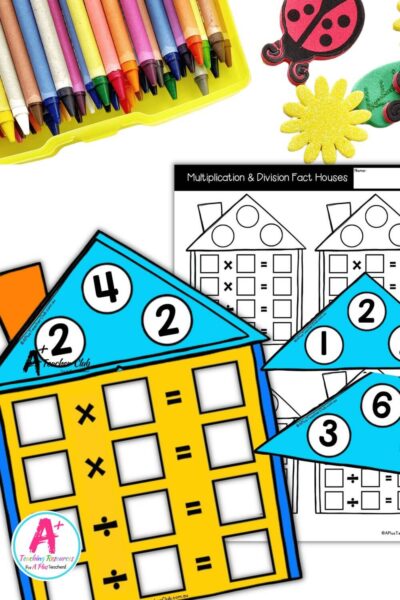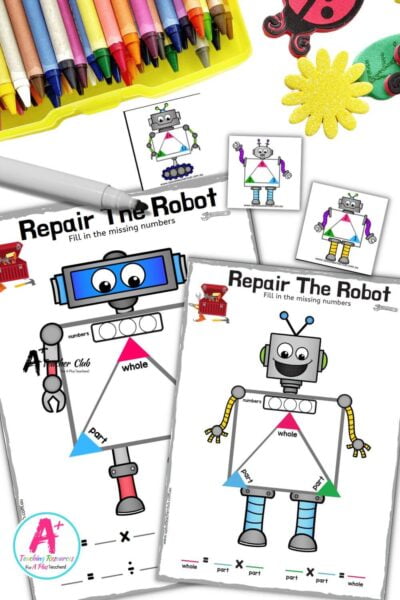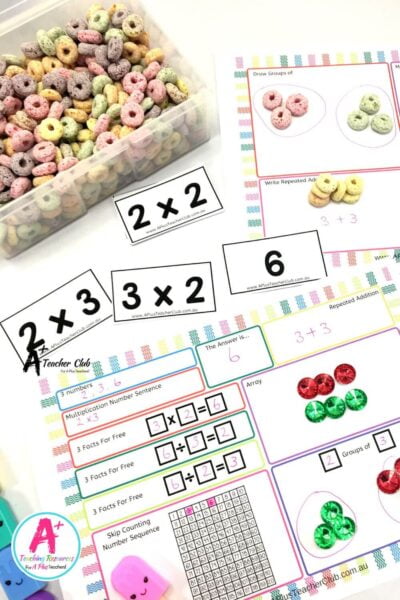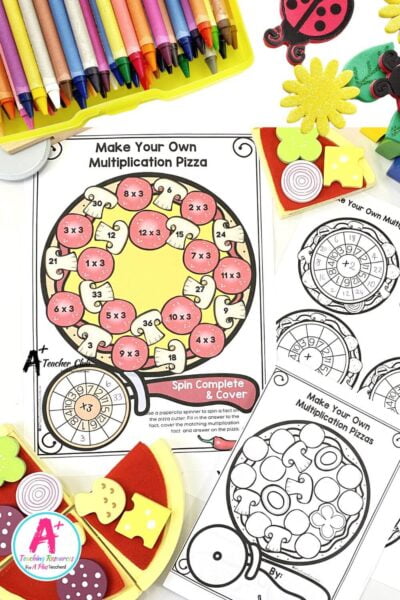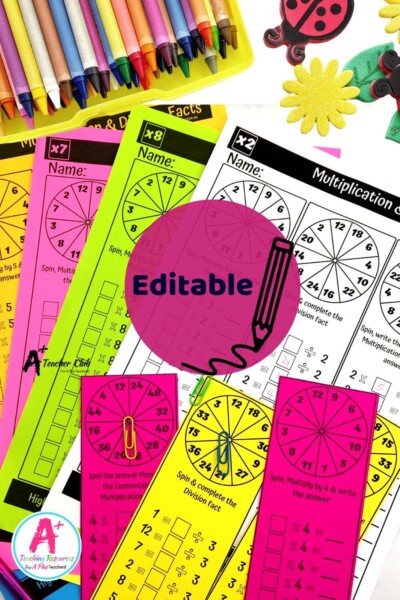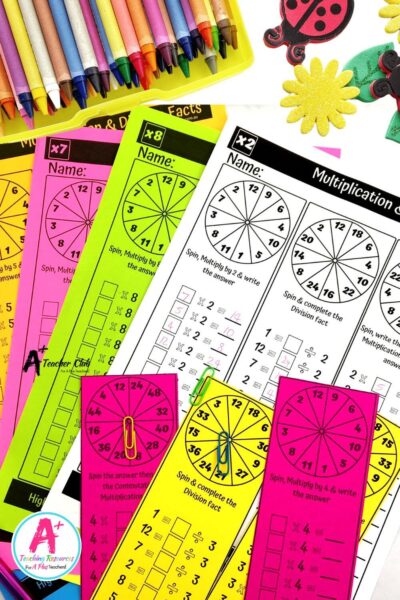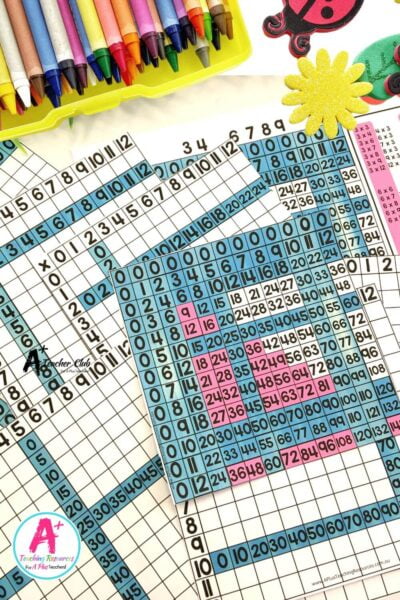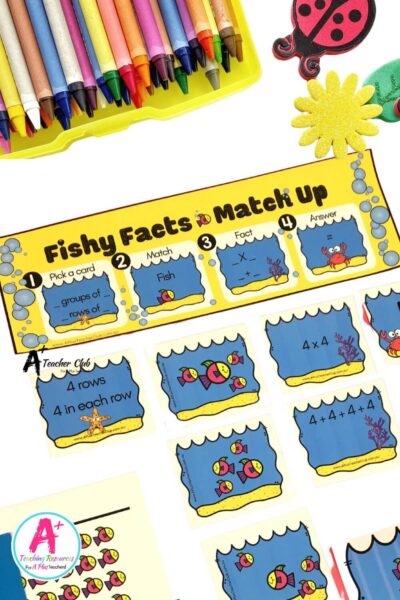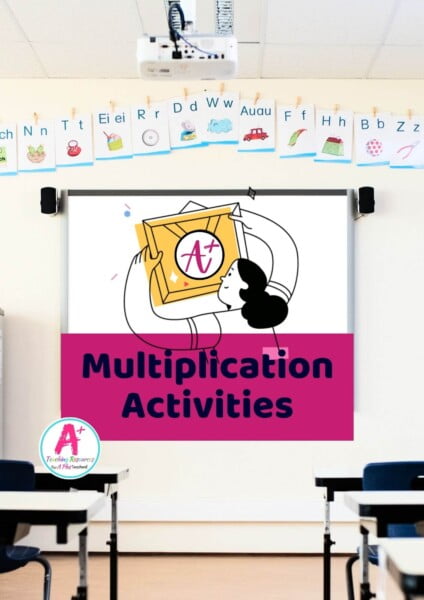Multiplication Facts Activities
Mental Maths
Want To Build Times Tables Recall? Then you need our Multiplication Facts Activities. These math teaching resources have been created for students who have been taught multiplicative understanding and are building fluency and automatic recall of the times table facts.
Related Posts: What You Need To Teach Kids When Teaching Multiplication
Multiplication Strategies Myths
Before we get into teaching multiplication strategies using repeated addition, arrays and groups it’s important to clear up some misunderstandings about multiplication.
These misunderstandings run deep and are left over from years gone by when having a fast fact-recall ability and a good memory was symbolic of being good at math.
There is absolutely NO EVIDENCE of a connection between mathematical ability and being the fastest at times tables, or even knowing your times tables.
Sadly too many kids, parents and teachers think that how well you know your times tables define how good you are at math. And if you don’t know your tables you’re not good at math. This viewpoint is totally FALSE and needs to be addressed and changed before it causes any more harm.
Times tables and rote learning of multiplication is just a reflection of how well you can remember something.
It is possible that students who are slow at recall or don’t know their times tables, can actually have a deep understanding of multiplication and be high achievers in math.
So please don’t assess your students’ multiplicative ability on their speed and efficiency at times tables, or let anybody else do this either!
Don’t take my word for it, Stanford Professor of Mathematics Jo Boaler NEVER learnt her times tables facts, yet she’s a math professor! See more on her work in these related posts.
Jo Boaler Video: Rote learning times tables ‘one of the worst things we do to kids
Related Posts: 7 Easy & Stress Free Teaching Multiplication Strategies For Kids!
Effective Teaching Of Multiplication Strategies
Before creating a multiplication strategies program it’s important to know what multiplicative understanding is. Here’s a helpful definition from research by Dr Dianne Siemon, Associate Professor of Mathematics Education…
Multiplicative thinking is indicated by a capacity to work flexibly with the concepts, strategies and representations of multiplication (and division) as they occur in a wide range of contexts.Dr Dianne Siemon
So here’s what you need to know as a teacher:
- Multiplicative understanding is developed both formally and informally throughout the years of schooling. It is introduced in less obvious ways starting in Kindergarten. e.g. making groups of (often thought of as division)
- Children who struggle with additive understanding will have difficulties with multiplicative reasoning.
- Understanding requires lots of exploration and manipulation and acting out using hands-on activities. Using materials, models, and drawings and being involved in “Math Talks” and discussions are needed before rote learning facts.
- Multiplication is not just repeated addition even though this strategy is used as an introduction to solving multiplication. Multiplication cannot always be solved using repeated addition. E.g. 2.5 x 3.8 and ½ x ¾ can not be interpreted as repeated addition.
- The concept of equality and knowledge of number properties form the basis for developing multiplicative thinking. e.g. using groups of strategy
- Multiplicative thinking includes going beyond memorization of basic arithmetic skills, times tables
- Multiplication Mental Strategies are also a separate entity and need explicit teaching as a way of becoming fluent in solving multiplication problems
So get started and make learning multiplication facts a blast with our fun and engaging activities below.
Resources listed in this collection
Click to jump to...-
Fact Fluency - Multiplication & Division - Fact House Puzzles
-
Fact Fluency - Multiplication & Division - Robot
-
Fact Fluency - Multiplication - Think Board
-
Fact Fluency - Multiplication - Pizza Fact Spinners
-
Fact Fluency - Multiplication & Division - Spinner Facts Worksheets Editable
-
Fact Fluency - Multiplication & Division - Spinner Facts Worksheets
-
Fact Fluency - Multiplication - Multiplication Grids
-
Fact Fluency - Fishy Facts Match Up
Multiplication Activities
More Multiplication Activities
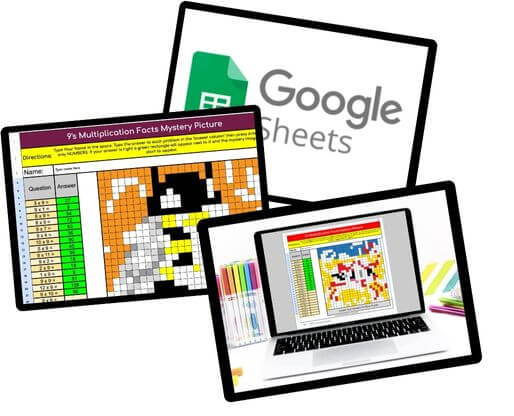
Multiplication Facts
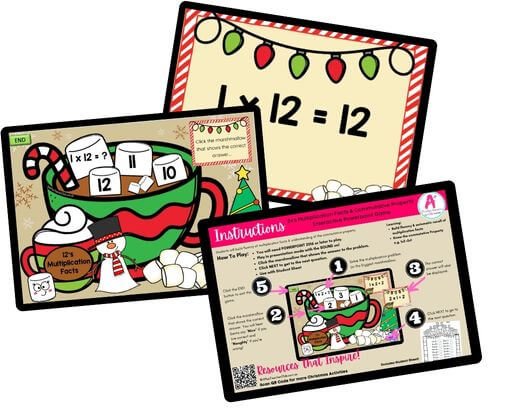
Multiplication Facts
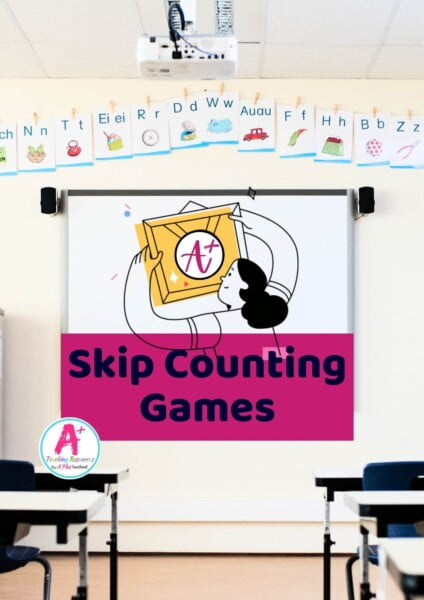
Explore Our Skip Counting Collections
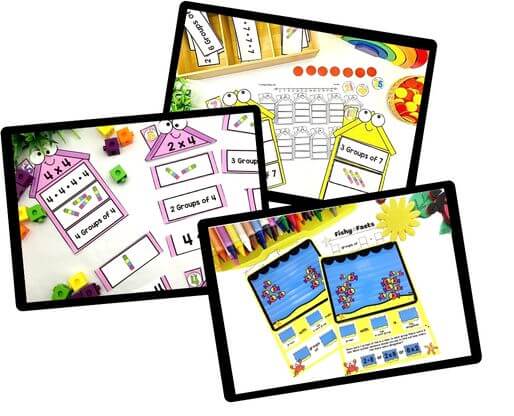
Multiplication - Equal Groups Of
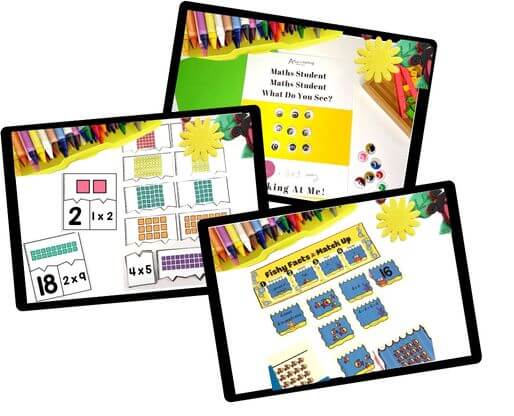
Multiplication - Arrays
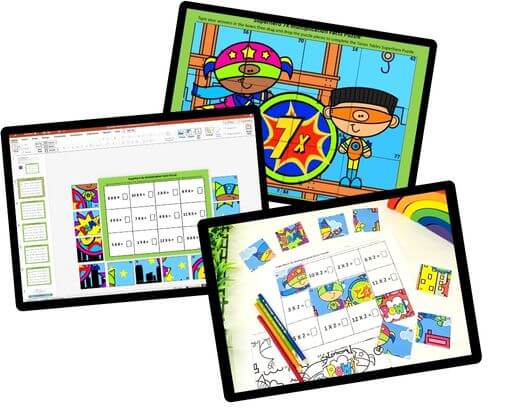
Multiplication Facts Recall & Fluency
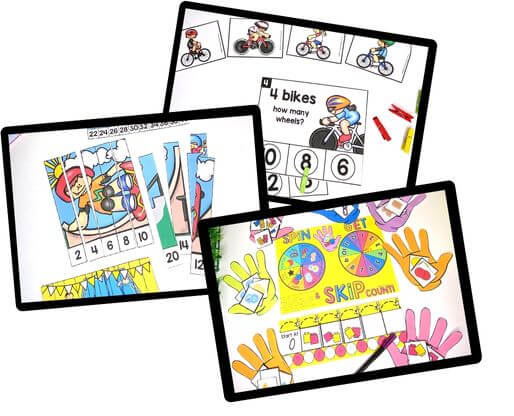
Skip Counting by 2
Can't find what you're looking for?
Send us a request! Use this form to request a resource. Please give details of the learning area, topic, year level, curriculum links. We’ll be happy to take a look to see if we can fit it in. Unfortunately a request does not guarantee we will be able to make it!
"*" indicates required fields

